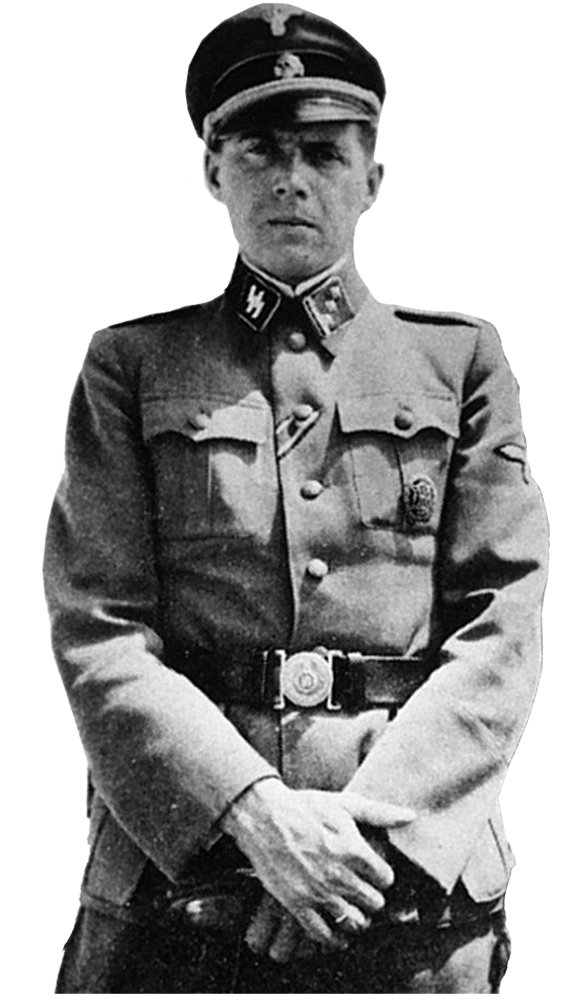SS Hauptsturmführer Dr. Josef Mengele


FAQ
Who are Kalman and Leopold?
Kalman and Leopold are two boys who survived unimaginable hardships during the Holocaust, relying on each other’s strengths, wit, and resilience inside the SS guard shack of Josef Mengele’s hospital camp.
Are Kalman and Leopold brothers?
No, Kalman and Leopold are not brothers. They both have twin sisters and, on arrival at the Auschwitz-Birkenau concentration camp train station, were each personally selected by Mengele as subjects for his inhumane twin experiments. However, even though they were not brothers, their bond was as close as family, forged in the crucible of survival.
Is the story based on real events?
Yes, the story draws from historical events and the lived experiences of Kalman and Leopold who survived the Holocaust and Mengele’s Auschwitz.
What is the difference between surviving Auschwitz and surviving Mengele’s Auschwitz?
When I refer to “Mengele’s Auschwitz,” it highlights the specific and harrowing atrocities conducted by Dr. Josef Mengele, a Nazi physician notorious for his role in the Holocaust. This title distinguishes the general horrors of Auschwitz-Birkenau—the largest and most lethal of the Nazi concentration camps—from the unique horrors tied to Mengele’s pseudo-scientific experiments and selections. Unlike the broader administrative mechanisms of Auschwitz, Mengele’s activities were marked by a direct, hands-on sadism. Survivors often recount his smiling, almost charming demeanor, which stood in stark contrast to his cruelty. While all of Auschwitz was a site of unimaginable suffering—where over 1.1 million people were killed—“Mengele’s Auschwitz” draws attention to the specific atrocities linked to his name: the experimental torture and the dehumanization of individuals for pseudoscientific purposes.
What themes are central to the story?
At its heart, Kalman & Leopold explores enduring themes, including:
- Moral courage: The resilience required to resist dehumanization.
- Intergenerational trauma and strength: The echoes of suffering and resilience that persist through generations.
- Preserving historical authenticity: Addressing ethical challenges of staying true to history in a world prone to oversimplification.
Did Leopold sacrifice himself for Kalman?
No, Leopold didn’t sacrifice himself. However, his wit and vigilance often protected both boys, preventing them from harm, beatings or even potential death.
How did Leopold’s wit save them?
Leopold’s quick thinking and ability to read dangerous situations helped the boys avoid punishments, beatings, and potentially fatal decisions.
Why did you choose to tell this story?
As the son of Leopold, I grew up learning about my father’s strength, resilience, and wit—qualities that helped him survive unimaginable horrors. But it wasn’t until I discovered Kalman’s perspective that I fully understood the depth of my father’s impact. To Kalman, my father wasn’t just a fellow survivor; he was a hero who used his sharp mind and resourcefulness to protect them both in a world designed to destroy them. I chose to tell their story because it is a testament to the power of human connection in the darkest of times. Leopold’s story is more than a personal legacy; it’s a reflection of how small acts of courage, intelligence, and compassion can mean the difference between life and death. The world needs to know this story because we are at risk of forgetting. As survivors pass away, so does the direct link to this history. Stories like Kalman and Leopold’s remind us of the resilience of the human spirit, the dangers of unchecked hate, and the enduring power of hope and solidarity. By preserving their story, I hope to honour their memory and ensure future generations understand not just what happened, but the strength it took to survive and protect one another.
What inspired you to write this story?
My father is the last surviving Mengele twin in Canada. His experiences and those of others who endured the Holocaust shaped my understanding of history and the importance of telling these stories authentically.
Why did you choose to self-publish the book?
I chose to self-publish because I wanted to preserve full control over the integrity of this story. When Kalman and Leopold entrusted me with their life rights, they were unequivocal in their request: their experiences were not to be dramatized or altered. They asked me to honour and protect the truth they shared, to preserve the authenticity of their voices. By self-publishing, I ensure their story remained theirs alone—untouched, unembellished, and deeply true.
What do you hope readers will take away from the book?
I hope readers gain a deeper understanding of resilience, the power of connection, and the enduring relevance of these stories in combating hate and preserving history.
Will there be a sequel or follow-up to this story?
Not currently, as this story was intended to stand on its own. However, I may explore related themes or stories in the future.
Where can readers meet you or hear more about the book?
I will be attending the London Book Fair from March 11–13, 2025, and the Los Angeles Times Festival of Books on April 26–27, 2025. Additional dates, including other events and appearances, will be announced on this website under EVENTS. Stay tuned!
How has your father and Kalman’s experiences influenced your writing?
It has deeply shaped my perspective, fueling my commitment to preserving their stories with authenticity and respect.
Why are Kalman and Leopold’s experiences particularly important today?
Their story reminds us of the consequences of hate and the resilience of the human spirit. It’s a call to remember and learn from history.

